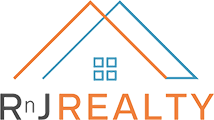The Green Revolution: Sustainable Practices Shaping Real Estate Development
The real estate industry is witnessing a profound shift towards sustainability, with environmentally friendly practices gaining momentum. From reducing carbon footprints to enhancing resource efficiency, sustainable real estate development is reshaping the landscape. In this article, we delve into the impactful role of sustainability in driving the future of real estate development.
- Environmental Advantages: Sustainable real estate emphasizes eco-conscious design, energy efficiency, and the use of renewable materials. By curbing energy consumption and emissions, these practices contribute to environmental preservation and resource conservation. Additionally, green spaces foster biodiversity and enrich urban ecosystems, enhancing overall environmental quality.
- Economic Benefits: Contrary to common belief, sustainable development offers long-term economic advantages. While initial costs may be higher, sustainable features lead to lower operational expenses through reduced utility bills. Furthermore, green buildings command premium prices and higher rental rates, appealing to eco-conscious tenants and investors alike.
- Social Implications: Sustainable buildings prioritize occupant health and well-being by offering superior indoor air quality and comfort. This results in increased productivity, satisfaction, and community well-being. Sustainable communities promote social cohesion and equity by providing accessible amenities and fostering a sense of belonging among residents.
- Regulatory Influence: Government regulations and incentives are driving the adoption of sustainable practices in real estate development. Building codes, zoning ordinances, and incentives encourage energy efficiency and green building certification. Additionally, sustainability reporting requirements prompt developers to prioritize environmental responsibility in their projects.
- Market Demand: Consumer awareness and demand for sustainability are driving market trends in real estate. Eco-conscious tenants and investors seek environmentally responsible properties, leading to higher occupancy rates and investor interest. As sustainability becomes a key differentiator, developers are integrating green features to meet market demands.
Conclusion: Sustainability is revolutionizing real estate development, offering environmental, economic, and social benefits. Embracing sustainable practices is essential for creating resilient and thriving communities. By prioritizing sustainability, developers can build a greener future for generations to come



